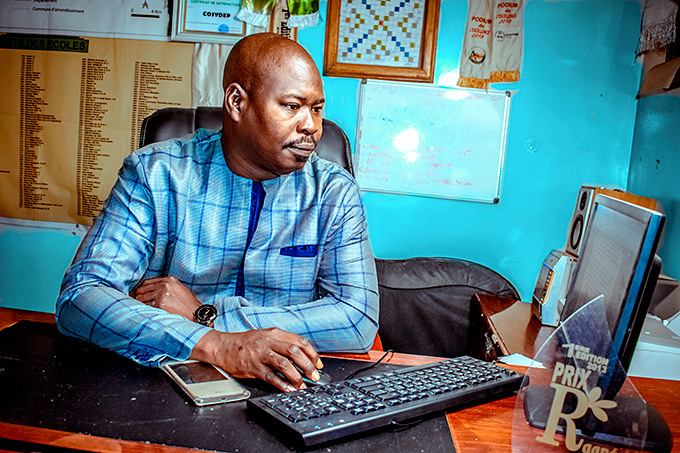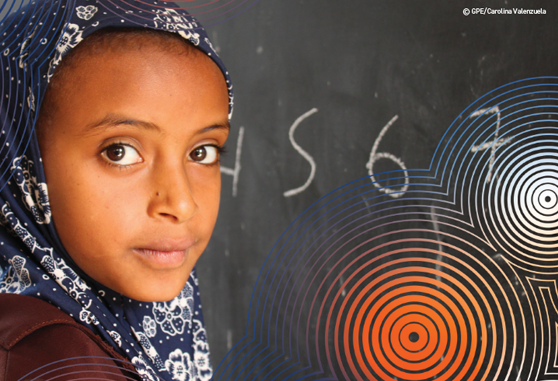COSYDEP, an audible voice
If you ask Cheikh Mbow, executive director, there is one case in particular that has made him proud and has also been pivotal for allowing the coalition to grow and gain the success and influence they enjoy today: the elimination of the quota-system in the educational sector.
COSYDEP
- COSYDEP is the Senegalese national coalition on education advocacy. The name is an abbreviation of Coalition of Organizations in Synergy for the Defense of Public Education.
- COSYDEP has around 100 members – NGOs, Unions, Parents’ Associations, CSO’s, CBO’s, networks, media, universities and other. It is a coalition that brings together various actors around the defense of the right to quality education for all in Senegal.
- The organization has worked to strengthen the credibility of civil society in the development, implementation, and monitoring of education policies as well as the improvement of multi-stakeholder dialogue.
"Up until 2012 we had a number of teaching positions set aside for people who was not employed through the normal channels but directly appointed by the government. They were employed and put in the classroom solely because of their connections. Rather than requirements of education, the security quota was based on co-optation and political patronage,” explains Cheikh Mbow.
When someone tried to confront the government about the unhealthiness in this system, they were themselves offered a quota – a number of positions they could fill with their friends and relatives. And according to Cheikh Mbow that kept criticism at a minimum for years.
We were loomed and intimidated
But in 2011 COSYDEP did a thorough research on how the quota system affected the quality of education. It was severe, and it sparked a lot of protests when these results were published.
“We made out voice hear a lot and arranged demonstrations and made sure the protests were heard. We were loomed and intimidated but at the end we won, and the quota system was eliminated, and it was made mandatory to actually pass an entrance exam to become a teacher,” says Cheikh Mbow.
By ‘‘security quota’’, we must understand teachers recruited directly by the central services of the ministry responsible for the sector and who therefore do not undergo beforehand the recruitment test administered to other education volunteers. These quotas are allocated to influential people to the detriment of candidates left behind, after a stressful competition. The recruitment of teachers by quota poses a problem of transparency, democracy, quality and personnel management.
The lack of control over the roster and the number of new teachers per year is largely explained by this phenomenon.
Watchdog and companion
Senegal is one of the countries spending close to internationally agreed targets on education as recommended by e.g. SDG Education International – 6.7 percent of GDP and 25 percent of the national budget. Still the figures are discouraging whether you look at enrolments rates, inclusiveness, retention or performance.
Global comparisons still place Senegal as one of the most challenged countries and Cheikh Mbow admits that there is a long way to go before reaching quality education for all.
COSYDEP was established in 2007 and has 100 members who are specialized in each of their fields within formal, non-formal and informal education. Some are NGOs, Unions, Parents’ Associations, CSO’s or CBO’s; some are networks or groups of stakeholders. Others are researchers, journalists or activists.
“This setup and outreach allow us to work at local and national level simultaneously. We keep a close eye on government to monitor how their commitment is performed. And we are present on the ground to follow the implementation and to alert civil society, media or authorities if needed,” says Cheikh Mbow and stresses that COSYDEP is not only taking a critical stance but is also very much a support and resource to the government.
“We are very active in proposing solutions to the challenges we meet. We offer the research and arguments and publicity that government might need in order to make the changes we argue. In short, we help the government make decisions by providing documents based on thorough research.”
The budget tells a story
The three main problems that he is currently focused on is the cost of education (the fact that even for public schools pupils end up paying large amounts in various fees), inequity in education (the fact that the education system tends to reinforce inequities; resources are still not oriented towards vulnerable groups) and the quality of education (the fact that very few learn enough in class leading to a pass rate of less than 40 percent. Besides, there is a mismatch between education, training and employment).
“The way we often look at it, is through the budgets. It has become clear to me that budgets tell a story and that it is by monitoring the allocation and spending we get to see the fuller picture. We support our members to understand budgets, follow the money and do advocacy based on the findings,” explains Cheikh Mbow.
His vision and hope are that Senegal will be able to build an education system that offers quality education and leaves no one behind.
“You know, education is the key to development and the path to start solving all the other problems, we face in Senegal.”
Education in Senegal
- Senegal spends 6.7 percent of GDP on education and 24.4 percent of their national budget. Still Senegal ranks low on global comparisons on education and is far from reaching the goal of Education for All.
- According to national figures 84.9 percent of Senegalese children are enrolled in school. COSYDEP figures backed by USAID reveal 1.5 million kids out of school.
- For 15 years, at least, the pass rate for national exams has not reached beyond 40 percent.
- Poor quality often linked to quality of teaching, number of kids in class, the lack of room for diversity in school leads to high dropout rates. The assessment system is based on mimicry and the School Guidance System does not promote the talents of learners.
Read more: www.cosydep.org


